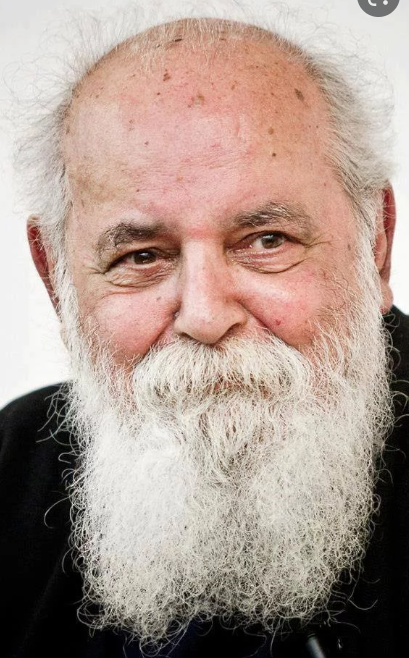September 23, 2022

Houshang Ebtehaj, a poet whose small but influential body of work made him a major figure not just in Iran but in world literature, died August 10 in Cologne, Germany. He was 94.
His death was confirmed by his daughter, Yalda Ebtehaj, who said on Instagram that her father, known by his pen name “Sayeh,” or Shadow, had “joined the other world.” In the post, she quoted a verse written by her father in the style of the great mystic poet Rumi: “Roam, roam roam…. There are strangers in this home, so you strangely roam.”
The cause of death was kidney failure.
Ebtehaj had lived in Germany since the late 1980s. He was born in 1928 in Rasht. He began writing when he was young and published his first book of poetry when he was 19. Throughout the 20th Century, Ebtehaj contributed to the popularity of the ghazal — a traditional form of Persian poetry set to music that expresses the writer’s feelings, especially about love, with moving intensity.
Suffused with romance and melancholic longing, his body of work was not regarded as overly political. But socialist politics were central to Ebtehaj’s identity. He sympathized with Iran’s Communist Tudeh Party, and paid the price after the 1979 revolution, when he landed in prison for nearly a year during a crackdown on leftists and communists.
He was released in 1984, when a well-known Iranian poet appealed to Ali Khamenehi, who was then president, to secure Ebtehaj’s freedom. That poet, Mohammad-Hossein Shahriar, wrote in a letter that Ebtehaj’s detention caused angels to weep on God’s throne.
Across his 70-year career, Ebtehaj became recognized for his innovative verses that built on the foundations of Rumi and the celebrated 14th Century Persian poet Hafez, combining traditional forms with modern social themes.
He was also a musicologist and scholar, lecturing at universities across Europe about the mystical lyrical poetry of Hafez. However, the international reach of his poetry remained limited, with only one collection translated into English.
In 1971, his love of poetry and music drew him to Tehran Radio, where he was selected as the director of Golha, a professional program of traditional Persian music. With contributions from vocalist Mohammad-Reza Shajarian and top musicians such as Mohammad-Reza Lotfi, Parviz Meshkatian and Hossein Alizadeh, he recorded numerous albums, which are considered a great treasure of Iranian music.
Ebtehaj is survived by two sons and two daughters. His wife, Alma Maikial, died four months before him.
